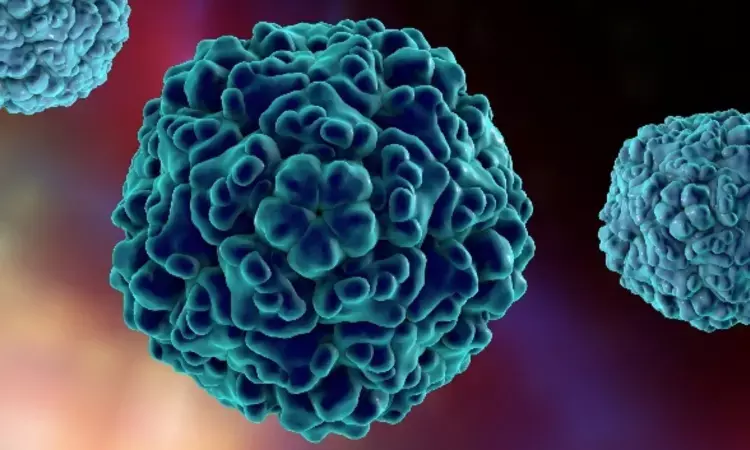- Home
- Medical news & Guidelines
- Anesthesiology
- Cardiology and CTVS
- Critical Care
- Dentistry
- Dermatology
- Diabetes and Endocrinology
- ENT
- Gastroenterology
- Medicine
- Nephrology
- Neurology
- Obstretics-Gynaecology
- Oncology
- Ophthalmology
- Orthopaedics
- Pediatrics-Neonatology
- Psychiatry
- Pulmonology
- Radiology
- Surgery
- Urology
- Laboratory Medicine
- Diet
- Nursing
- Paramedical
- Physiotherapy
- Health news
- Fact Check
- Bone Health Fact Check
- Brain Health Fact Check
- Cancer Related Fact Check
- Child Care Fact Check
- Dental and oral health fact check
- Diabetes and metabolic health fact check
- Diet and Nutrition Fact Check
- Eye and ENT Care Fact Check
- Fitness fact check
- Gut health fact check
- Heart health fact check
- Kidney health fact check
- Medical education fact check
- Men's health fact check
- Respiratory fact check
- Skin and hair care fact check
- Vaccine and Immunization fact check
- Women's health fact check
- AYUSH
- State News
- Andaman and Nicobar Islands
- Andhra Pradesh
- Arunachal Pradesh
- Assam
- Bihar
- Chandigarh
- Chattisgarh
- Dadra and Nagar Haveli
- Daman and Diu
- Delhi
- Goa
- Gujarat
- Haryana
- Himachal Pradesh
- Jammu & Kashmir
- Jharkhand
- Karnataka
- Kerala
- Ladakh
- Lakshadweep
- Madhya Pradesh
- Maharashtra
- Manipur
- Meghalaya
- Mizoram
- Nagaland
- Odisha
- Puducherry
- Punjab
- Rajasthan
- Sikkim
- Tamil Nadu
- Telangana
- Tripura
- Uttar Pradesh
- Uttrakhand
- West Bengal
- Medical Education
- Industry
Chinese scientists find 8 new viruses from rodents, sparking pandemic risk

The findings, detailed in the journal Virologica Sinica, the publishing arm of the Chinese Society for Microbiology (CSM), showed that the viruses belong to 22 families including arenavirus, coronavirus, astrovirus, pestivirus, parvovirus, and papillomavirus.
Beijing: A team of scientists in China have discovered never-before-seen viruses from rodents that have the potential for spillover to humans, sparking the next pandemic risk.
The teams from Chinese Academy of Medical Sciences & Peking Union Medical College found the viruses, including one belonging to SARS-CoV-2 -- responsible for Covid-19 pandemic -- from 682 anal and throat swab samples collected from 341 rodents in Hainan Province, in China between 2017 and 2021.
The findings, detailed in the journal Virologica Sinica, the publishing arm of the Chinese Society for Microbiology (CSM), showed that the viruses belong to 22 families including arenavirus, coronavirus, astrovirus, pestivirus, parvovirus, and papillomavirus.
Also Read:ICMR confirms presence of Nipah virus antibody in bat samples
According to researchers, the pathogens had a "high probability" of infecting humans if they ever cross the species barrier.
They called for further experiments on the viruses to determine exactly what their effects on humans could be.
Of the novel viruses, a new coronavirus dubbed CoV-HMU-1 was found to be a betacoronavirus -- a sub-genre of coronaviruses which includes Covid.
Several new pathogens found in other groups of viruses included two new pestiviruses, which are related to yellow fever and dengue; a new astrovirus, a family of viruses that cause infections like stomach bugs; two new parvoviruses, which can cause flu-like symptoms; and two new papillomaviruses, a family of pathogens that can cause genital warts and cancer in people.
The study also discovered new pestiviruses and parvoviruses in Edwards's long-tailed giant rat and the Sikkim rat species -- neither previously known to harbour the pathogens.
"The results expand our knowledge of viral classification and host range and suggest there are highly diverse, undiscovered viruses that have evolved independently in their unique wildlife hosts in inaccessible areas," the researchers said in the paper.
"If these viruses cross the host barrier, they are highly possible to cause zoonosis.
"The pathogenicity and associated impact of these novel viruses on humans and animals should be evaluated in further studies."
Kajal Rajput joined Medical Dialogues as an Correspondent for the Latest Health News Section in 2019. She holds a Bachelor's degree in Arts from University of Delhi. She manly covers all the updates in health news, hospitals, doctors news, government policies and Health Ministry. She can be contacted at editorial@medicaldialogues.in Contact no. 011-43720751


